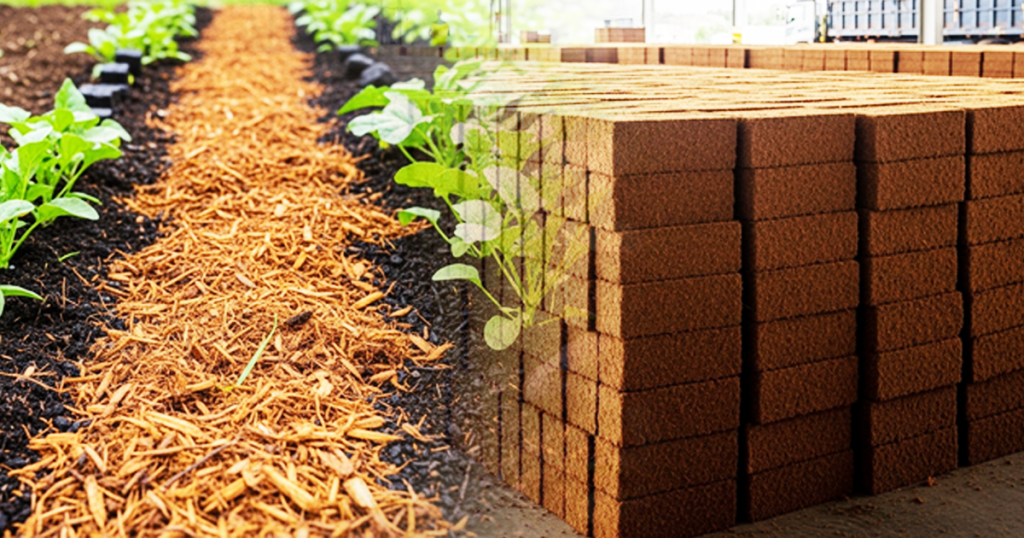Introducing Coco Bristle: Eco-Friendly Efficiency for Hotels and Restaurants
The hospitality industry is facing increasing pressure to adopt environmentally sustainable and hygienic practices. From biodegradable cutlery to organic linens, hotels and restaurants are rethinking traditional operations.
One promising innovation in this shift is coco bristle a natural fiber derived from coconut husk proving its value in cleaning applications that require both sanitation and sustainability.
As a researcher in coconut-derived materials like cocopeat, I have observed how coco bristle is quietly making its way into professional housekeeping, kitchen sanitation, and waste management protocols in hotels and restaurants across Southeast Asia and Europe.
What is Coco Bristle?
Coco bristle is extracted from the outer layer of mature coconut husks. This natural fiber is known for its durability, antimicrobial properties, and resistance to decay.
After processing and sun-drying, the bristles are used in making brushes, brooms, doormats, and scrubbers many of which are now finding purpose in commercial kitchens and hospitality facilities.
Unlike plastic or synthetic bristles, which can harbor bacteria and take hundreds of years to degrade, coco bristle offers a biodegradable and hygienically superior alternative.
Why Coco Bristle Appeals to the Hospitality Industry
Hygiene without Chemicals
The natural coarseness of coco bristle makes it an effective cleaning material. When used in dish brushes, grill scrubbers, or floor brooms, it dislodges grease and grime without the need for harsh chemicals.
Studies have shown that the surface texture of coconut fiber inhibits bacterial growth, making it an excellent candidate for areas requiring high sanitary standards, such as kitchens and restrooms.
Sustainability and Eco-Certification
Many eco-conscious hotels, especially those with LEED or Green Globe certifications, now seek products that align with environmental benchmarks. Coco bristle products, being renewable, compostable, and low in carbon footprint, fit these criteria well.
Manufacturers have started offering eco-labels on coco bristle brushes, indicating compliance with environmental guidelines. This helps hotels document sustainable practices, particularly for their housekeeping and food prep departments.
Durability and Cost Efficiency
Hospitality environments require products that can endure frequent, high-pressure use. Coco bristle’s tensile strength and water resistance make it more durable than most natural fibers. Brushes and brooms made from coco bristle typically outlast their synthetic counterparts, especially in wet or humid areas.
This durability translates into lower replacement costs something that resonates well with restaurant owners and hotel procurement managers aiming to balance quality with budget efficiency.
Practical Applications in Hotels and Restaurants
Housekeeping and Janitorial Tools
Housekeepers in boutique eco-hotels have begun replacing synthetic bristle brooms and dusters with coco bristle versions. These are not only more aesthetically aligned with eco-luxury branding but also deliver excellent performance on tile, stone, or wood surfaces.
Kitchen and Back-of-House Use
Coco bristle scrubbers are highly effective on commercial kitchen surfaces, from cutting boards to ovens. Because they do not shed microplastics, they are safer for use around food preparation zones and comply with hygiene regulations in multiple jurisdictions.
Waste Management and Composting
In zero-waste kitchens, compostable tools like coco bristle brushes make disposal simpler. After several months of use, these brushes can be composted with organic waste unlike plastic ones that contribute to landfill mass.
Industry Case Studies and Testimonials
Eco-resorts in Bali and Sri Lanka have led the adoption of coco bristle, reporting improved cleaning performance and guest satisfaction. In a 2024 case study conducted in Ubud, a 30-room resort documented a 22% reduction in cleaning supply costs after switching to natural cleaning tools, including coco bristle.
Michelin-starred restaurants in Europe have also shown interest. A restaurant in Amsterdam, for example, integrates coco bristle scrubbers in their daily dishwashing operations, citing “longer life span and zero residue” as their primary motivation.
The Road Ahead
While still a niche market, coco bristle’s role in the hospitality industry is expected to expand. With increasing awareness around plastic pollution, guest expectations for green practices, and supply chain accountability, the demand for biodegradable alternatives will likely grow.
Further R&D into blending coco bristle with other natural fibers or creating antimicrobial coatings could open new doors for its application in healthcare and hospitality sectors alike.







